#why is america so illiterate
Text
been seeing a few posts from various people about reading habits and actually. my opinion is if something gets you to read then it’s better than nothing at all. fanfiction? cool. stuff you read in middle school? cool. classics? cool. super serious adult fiction? cool. ya? cool. biographies? cool. guinness world records? cool. so long as you’re able to comprehend and process the works and critically think about what’s presented then who cares
#this is being said as a former 'read twenty books a day' kid who is now an illiterate english major.#to be fair I think I might be getting out of my 'too depressed to read' state that I was in but like. I still have the trouble of#I have nowhere to put books like my bookshelf is stacked Very Carefully so I can't remove anything.#but having the opportunity to have the space and time to read last night. I managed most of the 1986 gwr book.#which is great because I haven't read properly in forever#and like. I'm not gonna say social media wholly caused my inability to read but it played a role.#which is worth thinking about. even if it was mostly 'life got shaken up badly and I hadn't really been exposed to anything I Wanted to read#so I simply didn't'#y'know???#though to be fair I am also one of those people who goes 'think all published lit is bad? read better books. think fanfictions sucks?#read better fanfic' type of people. genuinely reading is about finding the thing you like most#with a bit of comprehension and analysis thrown in but if you enjoy something you probably do that subconsciously Anyway#also like. I understand why people do it but shaming people for solely reading ya or whatever in their adult years is. kinda silly#like what's the average reading age in america? grade eight level? that's fourteen aka ya level reading#the average american is not going to be a fourteen year old. hence it's fine to read what you're comfortable at reading#you wouldn't shove a baby in front of the entire body of shakespeare's works and expect them to read it perfectly#and give you a twelve-page essay on it would you!#and a reminder; critical thinking is about what's being presented in this work? what sorts of metaphors or similes are used?#is there anything the author has written that's good? what's bad? what biases are present?#that sorta thing. if you're actually reading the text you should have at least a vague idea of how to answer
5 notes
·
View notes
Text
GUYS!!! Stop saying Coyle is singing his ABCs wrong!!
"T, P, D, A, T, F, C, I, A, F, B, I, U, S, P, I, S, D, O, D, S, S, S, U, S, A."
He's not singing his ABCs he's just using the same tune, they're all acronyms
TPD = ?*
ATF = Bureau of Alcohol, Tobacco, Firearms and Explosives
CIA = Central Intelligence Agency,
FBI = Federal Bureau of Investigation,
USPIS = United States Postal Inspection Service,
DOD = United States Department of Defense,
SSS = Selective Service System,
USA = United States of America
Okay? So let's all stop saying he's uneducated or illiterate because he's definitely not. Pre-Sinyala Coyle kept "obsessively complete notes" according to Clyde Perry's account, and furthermore just look at his pretty handwriting on the evidence boxes, that's not an uneducated scrawl. Coyle is willfully ignorant, but he's not lacking in basic literacy skills.

"But Leon, why did he misspell Guilty as Giltee on the Scapegoat?"
Well, friend, I don't entirely know. But as he's spelt it correctly in other places, he probably did it on purpose, matching his dialect to emphasise his point. Maybe he just forgot about the U and by the time he'd started carving the L he knew he needed to commit to his fuck up.
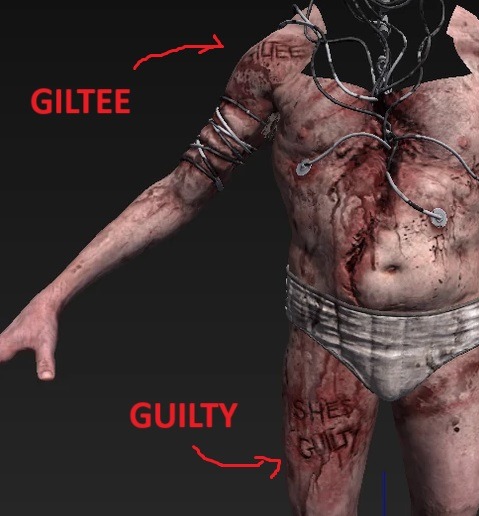
*Sooo I have some theories as to what TPD could stand for.
Total Permanent Disability. In one of Coyles' dialogues, he mentions his Father losing his foot in the Battle of Hürtgen Forest. That injury would likely see him permanently disabled and unable to work as he had before (it's implied that Coyles' parents were cattle ranchers), therefore he would be entitled to welfare checks.
Tulsa Police Department. Tulsa and Blackwell are within 2 hours drive of each other and it's very possible that Coyle completed his training at the Tulsa Police Academy before going on to work for the Blackwell Police Department. Tulsa also has history of violent racism, which would appeal to Coyle.
Tactical PSYOPS Detachment/United States Psychological Operations. There was extensive use of psychological operations in World War II, and given everything that the Outlast Trials are about I think this is a worthy contender.
Tobacco Products Directive. This was the only other thing I could think of that would make sense in conjunction with Coyle, but it's a European Union directive, and therefore I think it's unlikely this is what Coyle is referring to, but I still thought it was worth mentioning.
If you have any better ideas please feel free to share them!

A big big thank you to my friends in the Coyle Crew: @misa-bun @soggy-bean and @mortisdeth for their help in researching, theorising and giving me moral support when I thought I was about to lose it
#leland coyle#sergeant leland coyle#sergeant coyle#officer coyle#the outlast trials#outlast trials#outlast#friends stuff#its just a theory#backed up by evidence
233 notes
·
View notes
Text
I am absolutely shocked that we're still seeing claims that Ed is illiterate. Aside from the racism of it all (why is that we have to debate if a brown man can read?), it's just clearly disproven in the show.
Aside from the massive interest Ed shows in Stede's library (part of that is class, of course, books were a rarity even on land and Ed has probably never seen so many in one place before), and the papers on his desk in his cabin, Ed is literally shown reading on screen at the party in episode 5. He seats himself at the table before most of the other guests have filled in, so it's not a matter of chance, and we're clearly shown the placecard that he had to read to let him know where to sit.

If that's not conclusive proof that Ed can read, I don't know what is.
Okay, then why did Ed sign the Act of Grace with an X? Historically, it's true that signing with an X was often used for people who were illiterate, but you know when it was also used? Indigenous leaders in North America often signed treaties with colonizing forces with an X, symbolizing that the treaties were being made under unfair conditions and they did not approve of the terms but they had no other choice. (If you're interested in this topic, check out X-Marks by Scott Lyons; it's a great book.)
I'm open to discussion about how and when Ed learned to read. Did he teach himself? I read a fanfic once where his mom smuggled books from the estates where she worked so he could learn, I love that idea. Does he like reading, or is it another upper-class thing he struggles with convincing himself he can have? Ed's relationship with literacy is definitely a worthwhile conversation to have. But there's no question that he can read, and I am so sick of reading about how a White man has to teach him.
293 notes
·
View notes
Note
have you talked about which of the mercs you think are most likely to know another language, and which? (some are. more obvious than others but lol)
Ooh, haven't talked about this, let's go!
Scout:
We do know from the comics that he is either dyslexis or illiterate and has trouble reading, and I don't think he would be particularly interested in learning another language.
I do know people headcanon him speaking French but I just don't see it. "Whaddya mean words have gendah? No the fuck they don't" - Scout, probably.
Learned Spanish at school, can say "Hello, my name is Jeremy, my Spanish is very bad!" but that's it.
Soldier:
Very likely knows a moderate amount of Polish. Taught Medic to say "kurwa".
Not interested in learning languages but I think foreign words just stick to him, he has tge easiest time picking them up
Pyro:
Definitely knows ASL like a champ. Tries to teach the mercs, too, with varying degrees of success.
Doesn't learn any new languages but constantly asks people what things are called in their native languages. Remembers about a third of the words he's given. Still worth it.
Demoman:
He could MASTER Russian phonetics but instead he's learning Klingon like the fucking nerd he is. I love him so much.
Probably speaks Gaelic also. I dunno, I don't know enough about Scotland unfortunately, even his speech patterns are hard for me
Heavy:
Fluent in French.
Starts out with zero knowledge of German but is very persistent and goes to great extents to learn it.
His English is piss but he probably had like. A two-week long express course before they shipped him to America. Jeebus Crust.
Engineer:
Picked up some Russian from Heavy, some German from Medic, some ASL from Pyro, some French from Spy. At some point even started saying "kurwa" in that Texan accent of his.
Probably decent in Spanish, too, cause why not.
Medic:
Fluent in Latin.
Knows like a dozen Russian words and none of them are PG-13.
Sniper:
I dunno. He reads upside down. He knows bird calls and stuff. Does that count? Morse code also.
NZSL.
Spy:
Oh, I'm gonna musspell this but. Here goes. Quebecois.
Says he can lip-read but actually can't.
Overpronounces every foreign dish name in restaurants like the pretentious bastard he is.
"Qruasön" I dunno.
Probably forgot something. Cheers!
254 notes
·
View notes
Text
I don’t understand why Zutara shippers are so obsessed with hating Aang (or Kataang).
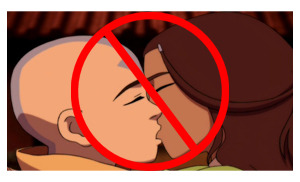
I understand they wish Zutara was canon, and that’s perfectly valid. I get why people ship it, and even though a good chunk of the toxic side of the ZK fandom say some pretty racist stuff, the ship is harmless. But the hate is vitriolic. You got to people like the-badger-mole, sokkastyles, longing-for-rain and they spend more time whining about Aang and his relationship with Katara than they talk about Zutara. They say the most objectively untrue stuff about Aang, Katara and Zuko as if making false claims about these characters is the only way to make their ship look good.
For example:
“Zuko did some bad things throughout the show, but Aang is worse because he never supported Katara and sexuality assaulted her. Not to mention Katara never had feelings for Aang, he was practically her son that she had to take care of”.
What ZKs actually sound like:
“Zuko did some bad things throughout the show, so we have to make Aang look worse by comparison to ensure that Zuko is a better match for Katara, despite his own problems, because surely a poorly timed kiss is the same is sexual assault. We falsely believe Aang never supported Katara because he didn’t agree with her seeking vengeance of the person who killed her mom, unlike Zuko who helped her out, meaning that one single episode must mean he’s the only one who supports Katara. Lastly, we have to find a way to make Katara’s obvious affection for Aang problematic, so let’s blow her motherly traits way out of proportion and say that any time she shows Aang affection, it’s a mom coddling her toddler, and yes Aang is a toddler because he’s BALD. So what that they kissed, they’re a mother and child. Also Katara emotionally supporting Aang is bad, she actually hates it. Dude trust me”.
They reason I bring this up is because I don’t understand why they have to be so bitter, it just makes them look pathetic that these people, some fully grown adults are so butthurt about a non-canon pairing from a 20 year old cartoon. Their media-illiterate ramblings don’t prove Aang and Katara are a bad couple, they just make it painfully obvious to anyone with a brain that these types of pathetic ZKs are just seething and coping.
Sure, you might say “I’m not one to talk” seeing as Kataang is canon, but let me tell you, I have my fair share of non-canon ships that I love.

I love Ichigo X Rukia, I think they have great chemistry and strong bond, I wish they were endgame, they felt like the heart and soul of Bleach. But I don’t hate Orihime, such a sweetheart (plus she gave us the Leekspin meme) her and Ichigo are cute, I just think Ichigo and Rukia are better.

I love Black Widow X Captain America from The MCU, they would’ve been a cute couple, they had good chemistry, they kissed for corn’s sake. I don’t care that much for Steve X Peggy, they’re kinda cute, but whatever, although I do really like Captain America’s ending. I don’t like Nat X Bruce, seeing as it came out of nowhere, but whatever, it didn’t last long anyway and I have nothing against either character.

If anything I’m more prone to getting annoyed when a beloved canon couple are broken up, all the build up thrown away and replaced with another character whom has less chemistry with the original. Case in point, Haley and Andy from Modern Family, they were so cute, they had great chemistry and there was so much build up, only for Andy to leave in the season where he and Haley become a couple. Then later Haley and her initial on again off again guy Dylan get together and I gotta say, I don’t like it. But I have nothing against the character, Dylan’s a sweet guy who genuinely loves Haley and matured a lot, and they’re in no way a bad or unhealthy couple, there are people who genuinely like them as a couple too. I do think Haley’s character was kinda done dirty, but that had absolutely nothing to do with what guy she ended up with.

The moral of this story is, you can like a non-canon ship and even dislike a canon ship without making up ridiculous reasons why and acting like a spoiled entitled brat like the vocal minority of ZeeK freaks from the the toxic side of the fandom.
#anti zutara#anti zutara stans#anti zutara shippers#pro kataang#a:tla#atla fandom problems#atla fandom critical#ichigo x rukia#steve x natasha#romanogers#haley x andy#modern family
20 notes
·
View notes
Text
we need to be real and just admit that the reason so many people online have atrociously stupid political opinions even if they identify as "leftist" is just because theyre politically illiterate and have zero knowledge of theory. people want to identity as leftists because theyre vaguely socially progressive (by being queer etc) but refuse to learn about leftist political ideas or actually mobilize/organize themselves beyond posting online. which gets you the people who id as "socialists" but not "communists" like that one tumblr poll because they have literally no idea what communism is and never cared to learn about it beyond the vague idea of communism as Evil in the public mind which makes them scared to align themselves with it even when communism is an essential part of actual radical leftism. even worse with americans who are specially politically stupid because america somehow thinks "liberal" and "democrat" are leftism when both are easily right wing and in direct support of capitalism. thats why you get these people believing so hard that they can change the world by voting bc they have no idea how a radical movement works
34 notes
·
View notes
Text
Monday September 16 ,2024 Truth Bomb
Karen Bracken
Nationwide school choice bill clears committee, moves to House floor - THIS IS NOT GOOD - PLEASE contact your US Representative and demand they vote No. Anything the government touches the government destroys. TOTALLY UNCONSTITUTIONAL and all of you constitutionally illiterate Americans need to read, research and understand our founding documents. The truth not the lies fed in our schools and by our government. The federal government has ZERO power or authority over education. Art. 1 Sec. 8 lists the 18 enumerated powers delegated to the federal government when the STATES created the federal government. Do you see any mention of education?? Do you see anything about marriage or health or environment listed? If it is not on the list the federal government has no constitutional power or authority and that goes for the Supreme Court as well. What choice in education do parents not have today? Every state in America already has “school choice.” What they now want is for the taxpayer to not only pay for public education but to now pay for private education too. If people understood the truth behind this movement they would not support it. The agenda is to eventually suck ALL school choices into the federal indoctrination system. Whatever they say school choice is today they can and will change it tomorrow. When they implemented Common Core globally one of the goals was to have ALL children under the same education system. That goal is still in effect today. There could be no outliers. What are the outliers? They are home educated children, religious school and private school children. So how do we get those students into the system? Oh I know.......lets offer a carrot to parents and call it school CHOICE……everyone wants choice, right??? Then we will force the taxpayer to pay for it and then eventually we can move the outliers under the same umbrella as the public/charter school students. One day in the future parents will be very sorry when they realize they got snookered again into yet another federal scheme (lie). Our failing education system needs to be fixed but school choice (taxpayer funded) is not the answer. At one time this country was 98% literate. Today we are at about 30%. What happened? What happened is that the federal government got involved and started dictating what schools will teach......oh not directly because that would violate their authority but they did it through funding and grants holding states hostage by the power of the purse. Want the money; you will do what we dictate. We need to get back to what made education great in this country many decades ago but that is not now and never was the goal of education because highly educated people threatens their power. Knowing how to read threatens their power. Dumbed down citizens are easier to deceive and control. WAKE UP PEOPLE this government NEVER does anything that will benefit you or your children - ARTICLE
SOVEREIGNTY SUMMIT TO EXPOSE BIDEN-HARRIS’ STEALTH IMPOSITION OF WORLD GOVERNMENT - Don’t forget to tune in to the Sovereignty Summit TODAY from 11:00am to 1:00pm ET - PRESS RELEASE
Bombshell ABC News affidavit released, exposes disturbing pro-Kamala debate scheme - ARTICLE
ABC Shocks Viewers: Breaks Its Own Rules Less Than 30 Minutes Into Heated Debate - ARTICLE/VIDEO (10 secs.)
Casey Means, M.D.: Why The Rise in Cancer in The Young? - If you have never heard a full interview with Dr. Means and her brother you really need too. The best one I have seen so far is the interview they did with Tucker Carlson. Here is a snippet of an interview Dr. Means did on Children’s Health Defense. 2 min. VIDEO
This is the interview with Carlson and the Means (brother and sister). It is long but worth every minute. I guarantee you will look at a lot of things differently after watching this interview. VIDEO
The disaster that is the Pact for the Future - I have read the 29 page document and it is everything Dr. Nass says and more. By the time the WHO and the UN/WEF get done it will perfectly coincide with the steal of yet another election in order to drive in their one world government because that is what these documents spell out for those that can read between the lines and have been reseaching this stuff for 20 years now. One thing I found in this document was that the implementation must be TURBO CHARGED - ARTICLE
7 notes
·
View notes
Note
Have you heard of dinner in america if not one of the characters says the n slur with the er and many other slur and people saying “media literacy” is dead because people don’t like it why is in this day and age we have to keep having characters says slurs there’s been 575754 medias of characters saying slurs can yt writers come up with something else
im going to assume this is a period piece written about black ppl in America either during slavery or civil rights era. and if it is. why are they as a white writer choosing that topic? just very strange. its not media illiterate to not want to see that slur on a page like just because its accurate racism doesn’t mean its needed? there are so many other things to write about
4 notes
·
View notes
Text
coastalcurmudgeon asked: Hi, would you mind pointing me towards any articles, books, video essays etc that make reasonable modern pro-monarchist arguments? When queen Elizabeth passed a few months ago it got me wondering why not just the British but several other wealthy democratic nations hang on to their monarchs. I'm from the US so it's a little difficult to understand the monarchies perspective off the bat and you seemed a good person to ask about where to find good arguments for it. Thanks and have a nice day
I want to thank you for asking such a simple question but one that many of us don’t really give a thought to. We get sucked into the tittle tattle of court intrigue or the tawdry gossip of the latest royal scandal made public, partly because it’s a visceral pleasure to see those above us squirm in discomfort, and partly to see them bleed - perhaps to remind us that they are as mortal and as fallen as we all are.
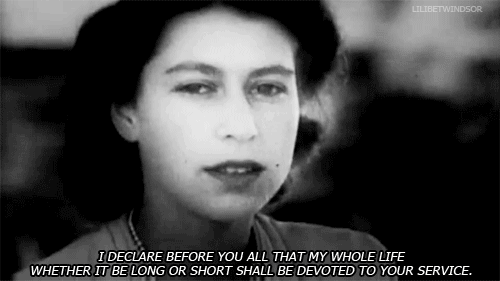
In the wake of Queen Elizabeth II’s death, the question of monarchy is brought sharply into focus. The sombre and reflective tone of the tributes to the late Queen Elizabeth II suggests the esteem in which she was held, as well as the apparent popularity of Britain’s constitutional monarchy. But it was not always so, as the queen herself was fully aware. She might have remained more or less beyond reproach, but her family-members have not. Often the Windsors seemed like a bad soap opera, attracting derision and resentment in equal measure. Yet, like their ancestors, they have slogged on regardless. Other monarchies have been toppled, or cut down to size, all over Europe and beyond.
We focus on the institution and its rituals and trappings without asking the underlying question of why? Why do we believe in the institution? It’s a question that even ardent monarchists find hard to answer properly.
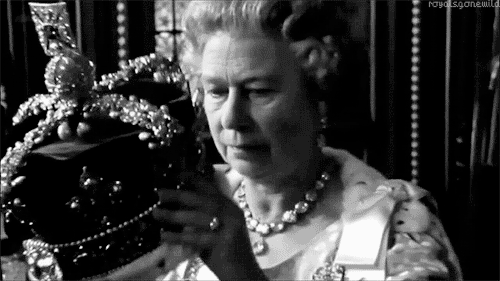
The hard leftists of course do know why they want to get rid of a monarchy in the name of some vague and unrealised ideal of equality and freedom from tyranny as well in the name of democracy. They do so out of historical ignorance given that the constitutional monarchy does exactly that and has been paradoxically a guarantor of these ideals through custom, heritage, and the rule of common law. For them it’s better to destroy than it is to build as Roger Scruton once said. Being historically illiterate, they don’t fully understand the folly on pulling one thread runs the danger pulling the entire tapestry of a nation apart.
I don’t want to caricature all them with one brush because not all leftists believe in the destruction of the monarchy in Britain. Some understand its value and even harmonise it within their leftist beliefs.
Stephen Fry, a socialist in his political beliefs but still widely considered (and righty so) as a national treasure, came out in his support of the monarchy in Britain. The beloved British actor, writer and presenter admitted in a podcast with Jordan Peterson that the Royal Family in interviews that “on the face of it is of course preposterous”. But he went on to explain how they can play a key role in society. The author referred to the Queen’s weekly Audience with the Prime Minister and suggested that the US could benefit from having a Monarch. He explained how his thoughts stemmed from his belief in “ceremony, ritual and symbolism”.

Fry told the podcast: “I look at America and I think if only Donald Trump and now Biden, if every week they had to walk up the hill and go into a mansion in Washington and there was uncle Sam in a top hat and striped trousers.” He explained how “uncle Sam” might be the US equivalent of a Monarch and described him as “a living embodiment of their nation”.
Stephen Fry added: “More important than they were that’s the key. He [uncle Sam] is America, the President is a fly-by-night politician voted for by less than half the population and he has to bow in front of this personification of his country every week. And that personification, uncle Sam can’t tell him what to do, uncle Sam can’t say ‘pass this Act and don’t pass that Act and free these people, give them a pardon’. All he can do is say ‘tell me young fella what you done this week’ and he’ll bow and say ‘well uncle Sam’.”
He suggested how uncle Sam might reply “oh you think that’s the right thing for my country”. Fry concluded: “Well that’s what a constitutional monarchy is and of course it’s absurd but the fact that Churchill and Thatcher and everyone had to bow every week in front of this something.”
The author went on to claim that “empirically look at the happiest countries in the world that’s all you need do and they happen to be constitutional monarchies”. Fry finished up by listing Norway, Sweden, Belgium, the Netherlands, Luxembourg and Japan as some of those "happiest" places who have monarchies.: “They’re always right up there on the list. Now it may be that we can’t find the causal link between the constitutional monarchy but it might just be something to do with that.”
I happen to think Stephen Fry is right. For these reasons yes, but there are much better ones too.
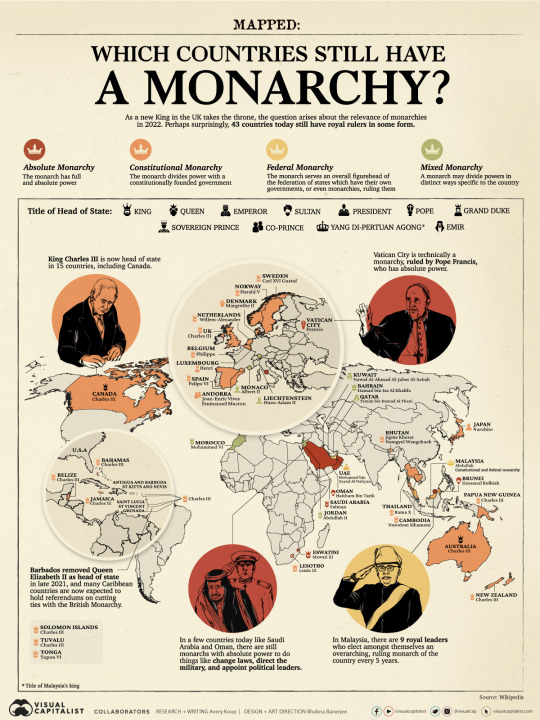
It’s first worth stating it helps to understand what kind of monarchy are we talking about? A surprising number of countries have ruling monarchs but not the same role or power. It’s important to break down the distinctions between the types of monarchies that exist today. Generally, there are four kinds.
In the constitutional monarchy, the monarch divides power with a constitutionally founded government. In this situation, the monarch, while having ceremonial duties and certain responsibilities, does not have any political power. For example, the UK’s monarch must sign all laws to make them official, but has no power to change or reject new laws. Example of countries that follow this are United Kingdom, Japan, and Denmark.
In the absolutist monarchy the monarch has full and absolute political power. They can amend, reject, or create laws, represent the country’s interests abroad, appoint political leaders, and so on. Such countries Said Arabia and Eswatini and even arguably the Vatican (the Papal office is like an absolutist monarch but of the church).
In the federal monarchy the monarch serves an overall figurehead of the federation of states which have their own governments, or even monarchies, ruling them. These countries include UAE and Malaysia.
In the mixed monarchy there is an unusual situation wherein an absolute monarch may divide powers in distinct ways specific to the country. Here Jordan, Liechtenstein, and Morocco are stand out examples.
To many contemporary critics and political progressives, monarchies seem to be purposeless antiquated relics, anachronisms that ought to eventually give way to republics.
On the contrary, nothing can be farther from the truth. Monarchies have an extremely valuable role to play, even in the 21st century and beyond. If anything their number should be added to rather than subtracted from. To understand why, it is important to consider the merits of monarchy objectively without resorting to the tautology that countries ought to be democracies because they ought to be democracies.

There are several advantages in having a monarchy in the 21st century. First, monarchs can rise above politics in the way an elected head of state cannot. Monarchs represent the whole country in a way democratically elected leaders cannot and do not. The choice for the highest political position in a monarchy cannot be influenced by and in a sense beholden to money, the media, or a political party.
Secondly and closely related to the previous point is that in factitious countries like Thailand, the existence of a monarch is often the only thing holding the country back from the edge of civil war. Monarchs are especially important in multiethnic countries such as Belgium because the institution of monarchy unites diverse and often hostile ethnic groups under shared loyalty to the monarch instead of to an ethnic or tribal group. The Habsburg dynasty held together a large, prosperous country that quickly balkanised into almost a dozen states of no power without it. If the restoration of the erstwhile king of Afghanistan, Zahir Shah, widely respected by all Afghans, went through after the overthrow of the Taliban in 2001, perhaps Afghanistan would have more quickly risen above the factionalism and rivalry between various warlords.
Third, monarchies prevent the emergence of extreme forms of government in their countries by fixing the form of government. All political leaders must serve as prime ministers or ministers of the ruler. Even if actual power lies with these individuals, the existence of a monarch makes it difficult to radically or totally alter a country’s politics. The presence of kings in Cambodia, Jordan, and Morocco holds back the worst and more extreme tendencies of political leaders or factions in their countries. Monarchy also stabilises countries by encouraging slow, incremental change instead of extreme swings in the nature of regimes. The monarchies of the Arab states have established much more stable societies than non-monarchic Arab states, many of which have gone through such seismic shifts over the course of the Arab Spring.
Fourth, monarchies have the gravitas and prestige to make last-resort, hard, and necessary decisions - decisions that nobody else can make. For example, Juan Carlos of Spain - now in disgrace but not in the beginning of his reign - personally ensured his country’s transition to a constitutional monarchy with parliamentary institutions and stood down an attempted military coup. At the end of the Second World War, the Japanese Emperor Hirohito defied his military’s wish to fight on and saved countless of his people’s lives by advocating for Japan’s surrender.
Fifth, monarchies are repositories of tradition and continuity in ever changing times. They remind a country of what it represents and where it came from, facts that can often be forgotten in the swiftly changing currents of politics.
Finally, rather counterintuitively, monarchies can serve up a head of state in a more democratic and diverse way than actual democratic politics. Since anyone, regardless of their personality or interests, can by accident of birth become a monarch, all types of people may become rulers in such a system. The head of state may thus promote causes or stir interest in issues and topics that would otherwise not be significant, as King Charles’ views on architecture and climate change proved. Politicians on the other hand, tend to have a certain personality - they are generally extroverted, can make or raise money, and have a tendency to pander or at least publicly hold to pre-defined mainstream views. The presence of a head of state with a psychological profile different from a politician can be refreshing.
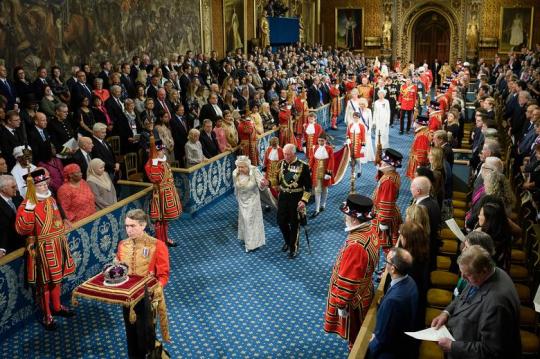
Most of the criticisms of monarchy are no longer valid today, if they were ever valid. These criticisms are usually some variation of two ideas. Firstly, the monarch may wield absolute power arbitrarily without any sort of check, thus ruling as a tyrant. However, in present era, most monarchies rule within some sort of constitutional or traditional framework which constrains and institutionalises their powers. Even prior to this, monarchs faced significant constraints from various groups including religious institutions, aristocracies, the wealthy, and even commoners. Customs, which always shape social interactions, also served to restrain. Even monarchies that were absolute in theory were almost always constrained in practice.
A second criticism is that even a good monarch may have an unworthy successor. However, today’s heirs are educated from birth for their future role and live in the full glare of the media their entire lives. This constrains bad behaviour. More importantly, because they have literally been born to rule, they have constant, hands-on training on how to interact with people, politicians, and the media.
In light of the all the advantages of monarchy, it is clear why many citizens of democracies today have an understandable nostalgia for monarchy. As in previous centuries, monarchy will continue to show itself to be an important and beneficial political institution wherever it still survives.
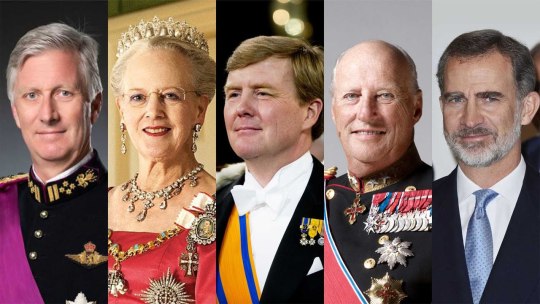
Constitutional monarchies are undoubtedly the most popular form of royal leadership in the modern era, making up close to 70% of all monarchies. This situation allows for democratically elected governments to rule the country, while the monarch performs ceremonial duties. Most monarchs are hereditary, inheriting their position by luck of their birth, but interestingly, the French president, Emmanuel Macron, technically serves as a Co-Prince of Andorra - a fact I enjoy making my good French republican friends squirm in discomfort. But France remains resolutely a republic despite many other European countries being a constitutional monarchy.
Monarchy has a long history in Europe, being the predominant form of government from the Middle Ages until the First World War. At the turn of the twentieth century every country in Europe was a monarchy with just three exceptions: France, Switzerland and San Marino. But by the start of the twenty-first century, most European countries had ceased to be monarchies, and three quarters of the member states of the European Union are now republics. That has led to a teleological assumption that in time most advanced democracies will become republics, as the highest form of democratic government.
But there still remains a stubborn group of countries in Western Europe which defy that assumption, and they include some of the most advanced democracies in the world. In the most recent Democracy Index compiled by the Economist Intelligence Unit, six out of the top ten democracies - and nine of the top 15 - in the world were monarchies. They include six European monarchies: Norway, Sweden, Denmark, the Netherlands, Luxembourg and the UK.
It remains a historical paradox. These monarchies have survived partly for geopolitical reasons, most of the other European monarchies having disappeared at the end of the First or Second World Wars. Their continuance has been accompanied by a steady diminution in their political power, which has shrunk almost to zero, and developing roles that support liberal democracy. What modern monarchies offer is non-partisan state headship set apart from the daily political struggle of executive government; the continuity of a family whose different generations attract the interest of all age groups; and disinterested support for civil society that is beyond the reach of partisan politics. These roles have evolved because monarchy depends ultimately on the support of the public, and is more accountable than people might think.
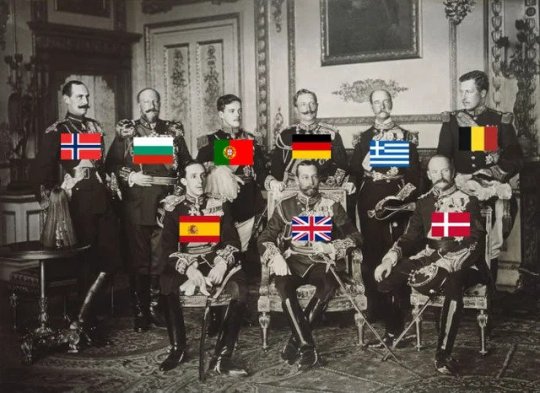
Understanding this paradox of an ancient hereditary institution surviving as a central part of modern democracies is a key part of understanding why monarchies persist and will continue to exist.
I’m going to confine answering your question to constitutional monarchy because it’s what the United Kingdom and the rest of Europe is. This is partly to narrow the wide question to something more manageable but also reflective of the fact that each country is different with its own unique history of customs, traditions, and heritage, and practices of governance, that make up the unique quality of the monarchy in question.
I’m just going to give you a general recommendation list rather than a deep academic dive into political theory. But then theory is no good without practice. History is the best place to start to understand some of the things I’ve already highlighted.
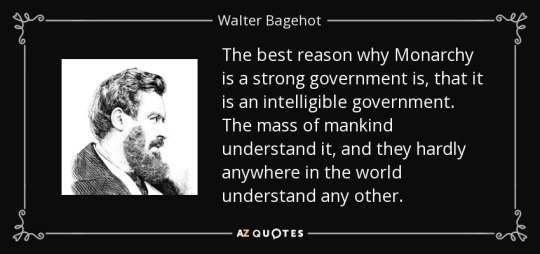
1. The English Constitution by Walter Bagehot
I know I said to start with history and here I’m recommending you begin with reading a book on constitutional theory and practice. But hear me out.
First published in 1867, this remains the indispensable guide to the role and purpose of the British sovereign. The text by Walter Bagehot (who was editor of The Economist for 17 years) is often mistaken for an official account of constitutional monarchy. In fact, it is a lively argument on how Britain’s old institutions should cope with the coming of mass-democracy. It was in this spirit that Bagehot contrasted the “dignified” parts of the constitution - the monarchy and the House of Lords - with the merely “efficient”, the Cabinet, MPs and the like. In the new age of mass-politics, he considered that the role of the monarchy was to “excite and preserve the reverence of the population” for the country’s institutions and government. Although monarchs might not have executive power anymore, they maintained three rights over “efficient” politicians - “to be consulted, to encourage and to warn”.
That the British monarchy survived while many of Europe’s were overthrown is in no small measure to the Windsors’ scrupulousness in following Bagehot’s advice. And, prophetically, he cautioned that the whole royal conjuring trick could only work if its dignity was preserved: “If you begin to poke about it, you cannot reverence it…its mystery is its life. We must not let in daylight upon the magic.”
The great thing is you don’t even have to buy it. Free copies exist online to download. I have my own copy because it really is a sort of bible for me when I have to think soberly and stay grounded as the latest royal scandal erupts and everyone is losing their heads.
2. Crown and Country: A history of England through the Monarchy by David Starkey (2010)
David Starkey is one of Britain’s finest medieval historians and fine prose stylist. A Cambridge historian whose lectures I used to sneak off to listen to - I did Classics - because the man was so charismatic, provocative, and damn clever. From one of our finest historians comes an outstanding exploration of the British monarchy, from the retreat of the Romans up until the modern day.
Crown and Country is a spin off from his TV series on the same subject. However the book is a great introduction to monarchy in Britain. In it he provides the reader with enough intellectual rigour to impart context, before livening the page with pithy tales of treachery or cruelty, of double-dealing or disaster. His delight at their shock value is tangible as he takes us from England's earliest status, as a barbarous outpost of the Roman empire, through to a rather uncomfortable attempt to second-guess how history will one day judge the contemporary members of the Windsor family (going up to the marriage of William and Kate).

Academic historians often complain that Starkey writes with the snappy zest of an unrepentant telly-don, but I doubt anybody else minds very much. He has a lovely eye for a good story – William the Conqueror being so fat that he could not fit in his sarcophagus, so that “the swollen bowels burst and an intolerable stench assailed the nostrils of the bystanders”, for example, or Henry II having such a tantrum that he fell out of bed and “threshed around the floor, cramming his mouth with the stuffing of his mattress”.
He also has a nice line in snarky humour. Academics have recently been trying to rehabilitate King John as a good administrator, he notes, but to praise him “for being a royal filing clerk shows historians looking after their own with a vengeance”.
Starkey’s great skill is to weave big themes quietly into a rollicking narrative, so that you absorb them almost without noticing they are there.
From the beginning, he argues, England’s monarchy has been unlike any other, divorced from imperial Roman traditions and based on an unspoken contract between king and people, and so reflecting a deep sense of patriotic exceptionalism. From Alfred, who effectively invented the idea of an English nation, to George III, who became the incarnation of bluff, beef-eating John Bull during the Napoleonic Wars, and on to George VI, the personification of quiet determination during Britain’s darkest and finest hours, successful kings have come to embody a wider spirit of national defiance. Perhaps that explains why, for all his faults, we remain fascinated with Henry VIII: he may have been a monster, but he was proudly, unapologetically, our monster.
Since it is evidently raw power that turns Starkey on, perhaps it is not surprising that once we are past the Glorious Revolution and the rule of dour, cunning, competent William of Orange, his narrative begins to flag. The House of Hanover, he says, was a “national joke” and although he clearly relishes the amorous misadventures of George IV and Edward VII, he spends barely 20 pages on the House of Windsor.
Compared with the blood-soaked warrior kings of his opening chapters, our recent monarchs have been personally colourless and politically irrelevant. But Starkey is not ready to give up on the monarchy. Just like his forebears, he points out, the current Prince of Wales has become the symbol of something bigger than himself, the cause of the environment and the spirit of voluntary service.
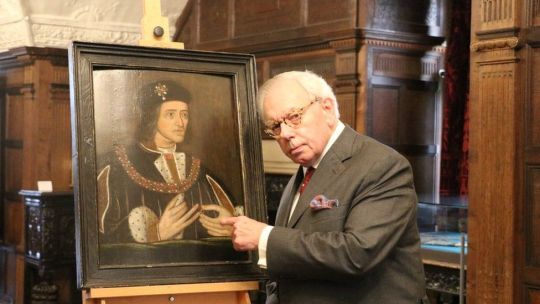
Nobody else could have set up such a vast empire of charitable endeavour: “Only he has the necessary combination of social and economic power and imagination to pull it off.” And here, Starkey argues, lies a formula for survival: “A new kingdom of the mind, spirit, culture and values,” which would appeal even to Oliver Cromwell.
Starkey is particularly good at explaining the shifting tone of monarchical power. After the straightforward Anglo-Saxon model, English kings had to incorporate the Norman way of doing things, with its "chivalric virus"; we then see the Tudors appear with their imperialist vision, followed by the disastrous Stuart belief in the divine right of kings, which James I subscribed to intellectually, and which Charles I paid for with his head. After that we see Hanoverian mediocrity, followed by Victorian pomp, and Windsor flexibility – changing nationality and name as wars with Germany, their ancestral home, demanded.
Crown & Country is a masterpiece of accessible history, underscored with profound scholarship: it takes the essential structure of hereditary monarchy, chronicles the struggles and triumphs of a rich panoply of carefully crafted characters and lays out the story of a nation. Above all, the author's passion for his subject, the royal tale of England, which is the backbone of this nation's story, explodes from every page. I defy anybody not to enjoy this book.
3. Blood Royal: Dynastic Politics in Medieval Europe by Robert Bartlett (2020)
Throughout medieval Europe, for hundreds of years, monarchy was the way that politics worked in most countries. This meant power was in the hands of a family - a dynasty; that politics was family politics; and political life was shaped by the births, marriages and deaths of the ruling family. How did the dynastic system cope with female rule, or pretenders to the throne? How did dynasties use names, the numbering of rulers and the visual display of heraldry to express their identity? And why did some royal families survive and thrive, while others did not? Robert Bartlett’s engaging Blood Royal tries to answer these questions by focusing on both the role of family dynamics and family consciousness in the politics of medieval European monarchical systems circa 500 to 1500 CE.
He creates an authoritative historical survey of dynastic power in Latin Christendom in western and central Europe and the Byzantine Empire (or former Eastern Roman Empire), providing an impressive level of depth while putting aspects of royalty and kingship in perspective. Each chapter brings the reader into this political world and aspects of medieval politics’ ties to family politics. Bartlett transitions seamlessly from example to example, but this apparent ease and vast knowledge reflects years of research and underscores his area expertise.

Blood Royal is an excellent book for anyone who has ever had a question about medieval European monarchy. If you’ve ever wondered how medieval marriages worked, the politics of dynastic succession, or even something as simple as what happened when the current monarch died then Bartlett’s book probably has an answer for you. Blood Royal is split into two sections, the first focusing on the specific lives of medieval royals, with chapters on medieval marriage, children, paternal relationships, as well as female rulers and mistresses. The second section covers dynasties rather than individuals. It is in this latter section that you’ll find discussions of names and numbers, pretenders, as well as heraldry and even the role of prophecy and astrology in medieval dynastic politics.
The scope of Blood Royal is immense. Bartlett includes early medieval dynasties like the Merovingians and Carolingians alongside later examples like the Plantagenets and the Hohenstaufen. Bartlett also incorporates an impressive range of dynasties from across medieval Europe, not limiting himself to just the French, English, and German royal families. Overall, it makes for a very impressive piece of scholarship from a senior historian, but one that is written in a very approachable and engaging fashion. The breadth of the coverage means that no matter where your interest in medieval Europe lies there’s probably something relevant to it in Blood Royal.
4. On Power: The Natural History of Its Growth by Bertrand De Jouvenel (1945)
Bertrand de Jouvenal is one of the most under-read political theorists in Europe today and it’s only in the last couple of decades his works have been translated into English. He wrote two seminal books pertinent to the state and how politics and monarchy mixed. I would thoroughly recommend his book ‘Sovereignty’ (1957) in that regard. How he treats sovereignty is clear and insightful and better than any academic I know. He describes how sovereignty in the modern sense can be traced back to the eleventh century, when absolutism was developed under such rulers as Philip the Fair. Before absolutism, it was acknowledged that every man had his seigniory, the king just as much as a simple farmer. The seigniory of the king was far greater, of course, but only as inviolable as that of every other person (as exemplified in the anecdote of Frederick the Great and the miller). The idea of a sovereignty that flows down from the sovereign to all his subjects was taken from the ancient Romans, and formed the basis of absolutism. One consequence of this was that democracy as we know it became possible in the first place. Before absolutism, there simply was no sovereignty that could be removed from the king and given to the people.
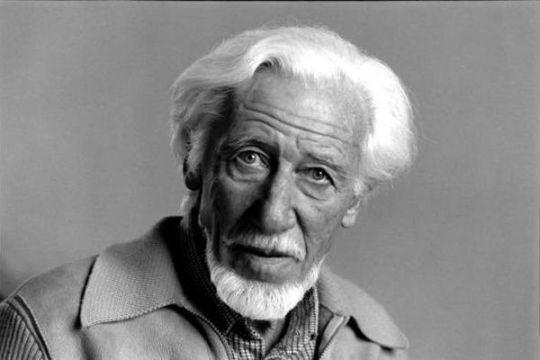
However I’m going to recommend his other book, ‘On Power’, as it’s book that defines the role of power and its relationship to sovereignty and where it came from. It goes into the role of sovereign or dux, and his or her shared responsibility with the larger group. This book explains how absolute monarchy is a recent concept, and as a result of the Enlightenment. It points out the hazards of absolute power within any form of government. It then goes into change v.s. distrust of initiative, and emerging liberalism. One of the best political treatises I have ever read. Bertrand de Jouvenel is unconventional, creative, very thorough and stringent. It's not easy to sum up, as the book is rather suggestive in nature. It doesn't so much tell you the solutions as make you think for them yourself. It gives you tools with which to overthink and analyse political problems, but doesn't force a solution on you.
Bertrand de Jouvenel (1903-1987) was a French journalist and political theorist. During World War II, he participated in the French resistance movement and finally took refuge in Switzerland, where he finished his masterpiece, On Power.
Jouvenel was troubled by the savagery of the war. Such a total war, Jouvenel realised, could not happen without the power of the modern centralised state. Jouvenel called this state, “Power” or “the Minotaur.” The question he set out to analyse was how this monster had grown so large. As indicated by the subtitle of the book, The Natural History of Its Growth, the analysis is meant to be positive political science, as opposed to normative political philosophy. When he wrote On Power, Jouvenel obviously knew little of the libertarian or classical liberal tradition. He has been labelled a “conservative liberal” à la Alexis de Tocqueville (whom Friedrich Hayek, it is worth recalling, does recognise as a full member of the classical liberal tradition).
The modern state has acquired a crushing power that includes war and conscription, an “inquisitorial mechanism of taxation,” and a police more effective than at any time in history. “Even the police regime, that most insupportable attribute of tyranny, has grown in the shadow of democracy,” Jouvenel observes. “No absolute monarch ever had at his disposal a police force comparable to those of modern democracies.” Power has continued and continues to grow.
Power is “command that lives for its sake and for its fruits.” State rulers want power and the perks that come with it. But, Jouvenel explained, in the very process of being self-interested, Power also benefits its subjects compared to what would be their situation in the anarchic state of nature. To gain their support and to make them more productive and taxable, Power provides its subjects with security, order, and other public goods. This is an old philosophical idea dear to defenders of absolutism, but it carries an analytical value of its own.
From Antiquity until the 16th or 17th century, Jouvenel argues, three ways existed to limit Power: divine law, fixed customary law, and powerful social authorities such as the ancient or the medieval aristocracy. All these were overcome. Divine law was brushed away by modern rationalism. Fixed customary law was replaced by changing laws made by absolute monarchs and, even more, by democratic parliaments. The aristocracy was stripped of any power.

Sovereignty, Jouvenel explains, is “the idea… that somewhere there is a right to which all other rights must yield.” The king claimed sovereignty against the aristocracy. Once the aristocracy was defeated, “the people” invoked it against the king. The king was simply replaced by the people or, in practice, by its representatives.
Jouvenel conceives liberty as “the direct, immediate, and concrete sovereignty of man over himself.” It is not participation in government, which is “absurdly called ‘political liberty’.” He forcefully argues that no regime other than aristocracy is “equally allergic to the expansion of Power.” Between the fall of the Roman empire and the modern nation-state, kings had to negotiate grants in aid from the aristocrats in order, for example, to fight wars, which were limited for this very reason. General conscription was unknown and impossible.
Jouvenel argues that liberty has aristocratic roots for it came from aristocrats who had the means and the will to defend their own liberty against Power. Liberty “is a subjective right which belongs to those, and to those only, who are capable of defending it.” It was certainly “a system based on class,” with all the drawbacks that this implies. Jean-Jacques Rousseau, a modern prophet of democracy, suggested that slavery might even be the necessary counterpart of free and independent citizens voluntarily devoting their time to public affairs.
To eliminate the independent social power that the aristocrats represented, kings allied themselves with powerless individuals such as the common people and the new capitalist bourgeoisie. Aristocrats were replaced by “statocrats,” individuals who derived their authority only from their position in the service of the state. The new democratic citizens would soon fall under a Power much more encompassing than that of the local lord.
A crucial idea of On Power, which can also be found in Tocqueville, is that instead of restraining Power, popular sovereignty reinforced it. Democracy was conceived by its early theorists as liberty and the rule of law. But another conception, which won the day, identified democracy with the sovereignty of the people. In this conception, democracy replaces the rule of law by the people’s good pleasure, which in practice means the good pleasure of its elected representatives and the government bureaucracy.
The popular sovereign became the new king, but without the restraints that law and aristocracy previously imposed. Liberty diminished since “[e]very increase of state authority must involve an immediate diminution of the liberty of each citizen.��� Like ancient philosophers, Jouvenel sees aristocracy, democracy, and tyranny as the only feasible regimes.
5. The Role of Modern Monarchy: European Monarchies Compared edited by Robert Hazell and Bob Morris (2020)
No new political theory on this topic has been developed since Walter Bagehot wrote about the monarchy in The English Constitution (1867). The same is true of the other European monarchies. So this is a welcome update in terms of what’s happened in the last 150 years or so across Europe. It’s actually the brainchild of a project coming out of the Constitutional Unit at University College London. The book is excellent and is written by experts from Belgium, Denmark, Luxembourg, the Netherlands, Norway, Spain, Sweden and the UK. It considers the constitutional and political role of monarchy, its powers and functions, how it is defined and regulated, the laws of succession and royal finances, relations with the media, the popularity of the monarchy and why it endures. This collections of essays written by academics is the first comparative study of its kind and broadly asks with their formal powers greatly reduced, how has this ancient, hereditary institution managed to survive and what is a modern monarch’s role? What theory can be derived about the role of monarchy in advanced democracies, and what lessons can the different European monarchies learn from each other?
The public look to the monarchy to represent continuity, stability and tradition, but also want it to be modern, to reflect modern values and be a focus for national identity. The whole institution is shot through with contradictions, myths and misunderstandings. This book should lead to a more realistic debate about our expectations of the monarchy, its role and its future. As a whole these twenty contributors notes several factors to the continued survival of the constitutional monarchy in Europe today.

Firstly, remain politically neutral. Monarchs who are too interventionist will encounter resistance and lose their reputation for neutrality. Secondly, avoid scandals, or any hint of corruption. Thirdly, keep the team small. The greater the size of the royal family, the greater the risk that one of its members may get into trouble and cause reputational damage; and the greater the risk of criticism about excessive cost, and too many hangers-on. Fourthly, Understand better the plight of the minor royals, allow them a means of escape and equip them to enter careers commensurate with their abilities. They lead lives of great privilege, but lack fundamental freedoms: the right to privacy and family life which ordinary citizens take for granted, free choice of careers, freedom to marry whom they like. Fifthly, keep in your lane. Although hereditary, the monarchy is accountable, just like any other public institution. The most high profile example is King Juan Carlos of Spain, now in exile and the subject of prosecutorial investigations. But he is not alone: other monarchs who stepped out of line have also lost their thrones.
Arguably the biggest factor of all is how accountable the monarchy is to its subjects - as paradoxical as that sounds. Accountability of the monarchy in a democracy is vital and necessary. Individual monarchs can be forced to abdicate; and support for the institution as a whole can be tested in a referendum. During the twentieth century there were 18 referendums held on the monarchy in nine European countries. It was through referendums that the monarchy came to an end in Italy and Greece, and was restored in Spain; and through referendums that the future of the monarchy was endorsed in Belgium, Denmark, Luxembourg and Norway. The monarchy may seem the very antithesis of a democratic or accountable institution; but ultimately continuation of the monarchy depends on the continuing support of the people for the roles it is seen to undertake. And people can be equally fickle with emotions as they can be reasonable and grounded in common sense.
I would also recommend two videos you can watch online which basically saves your from reading the above - or watching it may inspire you to go and read the books (which would be my intention).
1. Monarchy by David Starkey (TV documentary series)
Monarchy was originally made by Channel 4 as a British TV series that ran from 2004–2007. It was written and presented by the historian David Starkey charting the political and ideological history of the English monarchy from the Saxon period to modern times. The show also aired on PBS stations throughout the United States. You can watch the series on YouTube.
youtube
The first episode looks at discusses the early history of England and the birth of the Monarchy. It looks migration of the Anglo-Saxons into Britain and discusses some early rulers including. It looks at the roles of Aethelbert and his Frankish wife Bertha in the Christianisation of Britain. It examines the dominant reign of King Offa of Mercia. Finally, it looks at Alfred the Great and how he united England against Viking invasion.
2. The Role of Modern Monarchy: European Monarchies Compared: book launch discussion
This is an online discussion hosted by BBC’s David Dimbleby amongst some of the main contributors of the book and the conclusions they reached. It’s very good discussion both wide ranging and insightful how modern monarchies operate across Europe.
youtube
On the face of it, the British monarchy runs against the spirit of the times. Deference is dead, but royalty is built on a pantomime of archaic honourifics and frock-coated footmen. In an age of meritocracy, monarchy is rooted in the unjustifiable privilege of birth. Populism means that elites are out, but the most conspicuous elite of all remains. Identity politics means that narratives are in, but the queen kept her feelings under her collection of unfashionable hats. By rights, support for the crown should have crumbled under Elizabeth has sometimes imagined it might. Instead, the monarchy thrived. And it continues to thrive and thus maddening the bourgeois woke elites and perplexing trendy decolonisation academics.

Writing in the 1860s, Walter Bagehot, The Economist’s greatest editor, noted that under Britain’s constitutional monarchy “A republic has insinuated itself beneath the folds of a monarchy.” The executive and legislative powers of government belonged to the cabinet and Parliament. The crown was the “dignified” part of the state, devoted to ceremony and myth-making. In an elitist age, Bagehot saw this as a disguise, a device to keep the masses happy while the select few got on with the job.
You do not need a monarchy to pull off the separation, obviously. Countries like Ireland rub along with a ceremonial president instead. He or she comes from the people and has, in theory, earned the honour. A dud or a rogue can be kicked out or prosecuted. To a degree, history lays down the choice - it would be comic to invent a monarchy from scratch.

However, constitutional monarchy has one advantage over figurehead presidencies that is the final reason behind Elizabeth’s surprising success: its mix of continuity and tradition, which even today is tinged with mystical vestiges of the healing royal touch. All political systems need to manage change and resolve conflicting interests peacefully and constructively. Systems that stagnate end up erupting; systems that race away leave large parts of society left behind and they erupt, too.
Under Elizabeth, Britain changed unrecognisably. Not only has it undergone social and technological change, like other Western democracies, but it was also eclipsed as a great power. More than once, most recently over Brexit, politics choked. During all this upheaval, the continuity that monarchy displays has been a moderating influence. George Orwell, no establishment stooge, called it an “escape-valve for dangerous emotions”, drawing patriotism away from politics, where love of country can rot into bigotry. Decaying empires are dangerous. Britain’s decline has been a lot less traumatic than it might have been.
Elizabeth’s sleight of hand was to renew the monarchy quietly all the while, and King Charles’s hardest task will be to renew it further. The prospect is daunting, but entirely possible. My money is on the monarchy.
Anyway, this is by no means a definitive listing of books or other kinds of resources such as online resources. But I hope I can give you the flavour of the terrain of how and why monarchies continue to persist but also thrive in today's democratic environment.

Thanks for your question.
#ask#question#monarchy#united kingdom#britain#europe#constitutional monarchy#democracy#the state#society#politics#aristocracy#governance#constitutional#elizabeth II#king charles III#walter bagehot#david starkey
75 notes
·
View notes
Text
anyways I was going to say it is unbelievable how unintelligent so many people are. if you don't see it you won't believe it, if you're a middle class suburban college educated person you cannot understand. one person I used to work with thought Kim Jong Un was the leader of Japan. and she can vote. people are quick to blame the education system, and there are some issues with funding, but there is no excuse for people to come out of it functionally illiterate. maybe it's just a peeve of mine but when people make excessive spelling and punctuation errors, people who speak English as their first language, foreigners get a pass, it fills me with rage. equality has been the most destructive and evil idea in the history of humanity. no two people are equal to each other. I know the stereotype about Americans being dumb, and in a way it's true but I'm not sure why. maybe it's just a culture which doesn't really prioritize intelligence, I mean America for the most part is extremely proletarian culturally. there's an obsession with illiterate moron laborers. like how these millionaire guys will larp as cowboys on Instagram. even older than this. there's a tradition of ranch owners dressing in the same way as the people they employ. this is all wrong. and intellectuals are always treated as gay or European or something. there is an anti-european attitude in America. maybe this has something to do with it, most Americans hate intelligence in a way, maybe because this is a country which has (in theory) been in favor of equality. there is not a culture of intelligence because intelligence disproves equality, but the burden is only minimally on schools. I mean you can learn anything you want if you really want to learn it. there's really no excuse. it's not like we don't have electricity here you can go to the library as a homeless person and learn anything you want to learn. I think most people here are just useless and lazy.
6 notes
·
View notes
Text
I think it’s super duper interesting and not at all absolutely horrific how nearly half (40%) of all kids and teens in the US right now are unable to read at a basic level, most of them have no critical thinking or media literacy skills, and are a generation that largely feel lost and without purpose. and they’re living in a society in which it’s nearly impossible to get any kind of job that will pay your bills and keep a roof over your head… unless you have extensive higher education. Meanwhile, the US Navy has lowered the required test score to the lowest level allowed by law while also removing previous education requirements (such as required a high school diploma or GED).
So, let’s put this together, shall we?
1) An economy in which you need a well paying full-time job — i.e. one that pays at LEAST 2-3x the minimum wage — just in order to keep yourself out of poverty, not even to be comfortable. But most jobs at that pay level require you to have at least a bachelor’s degree, although that standard is quickly shifting to become a masters degree, which is difficult to attain and when all is said and done can cost tens of thousands of dollars, if not more. This sets the stage for…
2) A generation of children who cannot read, cannot think critically, are struggling with the most basic educational concepts, and are disillusioned with higher education as a whole. Undereducated in the public school system means they are therefore unable to pursue higher education in any meaningful manner, and a higher education is critical to survival in the US right now. But since they can’t attain this…
3) The military sees this and is lowering its standards accordingly, knowing that most kids will be unable to achieve anything else for themselves, and the military needs to hit their recruitment quotas desperately.
The military needs bodies to ship off, so why not use the entire generation of illiterate children who don’t have the critical thinking skills to see through the military’s marketing and misinformation, nor the educational or financial resources to attain a better future for themselves? Those kids will need a paycheck to survive, and the military will be the most easily accessible and comparatively lucrative option (when compared to the rest of the job market and any other career fields they could’ve potentially been interested in).
and look. I’m not one of those “hurr america bad everything is the US’ fault” morons (let’s not pretend like the military and their recruiters aren’t incredibly predatory in MANY other countries on earth, too). But war is always hell, and the US military is an awful fucking space; International geopolitics aside, the military will chew kids up and spit them out, and then refuse to give them the benefits they both need AND rightfully earned, especially if you become disabled during your time in active duty. Don’t let them trick you into thinking they’ll give you your “free ride to college”, because they’ll give you the runaround about that, too. They will say ANYTHING to get you to enlist so they can hit quota. The military is very much a numbers game.
So anyway. Super normal and cool and not at all completely dystopian and absolutely terrifying. We need to do everything we can to increase literacy rates and give our kids a better chance at not being forced or shunted into the military. RIGHT NOW, kids are entering adulthood and emerging into a society that they find unsustainable and will believe that they have no other choice. Devastating. If you identify as anti-war and pro-peace, one of your biggest advocacy points needs to be literacy — it starts with our kids. Everything begins there.
5 notes
·
View notes
Text
Here we go Part 3
LK 101 Boston Spills the Tea Party (part three)
pt1 pt2 pt3

Okay but like. Can we take a timeout for a minute and just. Soak that in. A woman of color in British North America in the 18th century fuckingg learned Latin and Greek. That is a Big Fucking Deal. Phillis Wheatley is a huge fucking deal. Can we talk more about her and people like her and less about the founding fathers, pls.


This interaction feels charged. Like Sarah, honey. I know you mean well but she was going to keep talking. You didn't have to interrupt her.

However, fucking love the roast, calling the colonial JoUrNaLiSt illiterate. It almost makes up for it. Almost.

*mad side-eye at Florida*

HOLY SHIT WHY ARE THEY LETTING THIS MAN LUG AN ENTIRE CART UP BY HIMSELF. JAMES PUT YOUR FUCKING FOOD DOWN AND HELP YOUR SURROGATE DAD. JFC.

There's also alooooot to unpack in this scene, but I just want to point out that resident horsegirl Sarah is hanging back with Caesar who is currently in his Bay Era.

I mean... I just.... I'm not sure someone who wasn't human trafficked and experienced firsthand the abject evil of chattel slavery in North America can hate it nearly as Moses does, DIC writers. We don't need to be Franklin apologists to get our point across.

I mean... Sarah... its thriving in British North America because England reaps the benefits of having cheap raw goods they are kind of sort of forcing the colonists to produce for them and them alone, and then selling the manufactured items back, all the while having the benefit of being physically and philosophically distant from the cruel and exploitive means by which they have been making absurd profits from gee this sounds painfully familiar, so really its not actually dying, you just can't see it.

Oh thank GOD Henri coming in with the poorly timed comic relief. Honestly I'm vibing with everyone here.

This is a look.

I just... I just... THE OVERARCHING THEMES HERE.

I mean.. I feel like they would have laundered their clothes.

Also I feel like this guy has a hatecrush on Benji Franx.

I wanna know who her friend is. Is she in the polycule, too?


Fabulous how everyone is so decked out for the trial.

oh my GOD I think she IS in the Frillips polycule

What a great tone to end the episode on, Frillips drama.
aaaaand on that note I need to get to work.
#liberty's kids#Tricorn on The Cob Watches LK And Makes Inane Commentary#james hiller#sarah phillips#sarah phillips/james hiller#Frillips#henri lefebvre#Moses#Lady Phillips#benjamin franklin#tricorn watches
7 notes
·
View notes
Text
I do feel bad for Central Asians that recommend A Bride’s Story to other people, and or rely on that manga series as a source of “representation” because on the lack of real representation we get in pop culture media.
It is rather upsetting that the media we get about Central Asians is being grouped with West Asians, and or having just Afghanistan be the core to Central Asian media. When the way Afghanistan is exhibited in the media is always associated with terrorism and the Islamic regime happening in the country, but never or rarely any positive representation of Afghans whether it’s showing off their culture. Not to mention the semi-Orientalist casting when it comes to Afghans by having Asians not from Afghanistan at all, being a portrayal of Afghans. Also, the American military propaganda showing off how “heroic” soldiers are for fighting in Afghanistan, when they’re literally participating in modern-day colonialism.
Or Borat, god fuck Borat. You have an insanely racist, British Zionist actor that used a village in Romania with Romani people, to “represent” the conditions of Kazakhstan. While having a main character, who doesn’t even look like a native Kazakh, playing this caricature of an oblivious Kazakh immigrant trying to become accustomed to American culture in the United States. But whenever Kazakhs from Kazakhstan say Borat is a dumbass movie, they get gaslit by white people trying to pass it off as “satire” when that movie has done irreparable damage to Kazakh diasporas in America, and native Kazakhs from Kazakhstan. They will always find a way to mention Borat while talking to a regular Kazakh.
God, we deserve so much better. I don’t fucking care that in America, Central Asians have the smallest population when it comes to Central Asian Americans or immigrants, that is not an excuse as to why we have 0 positive representation of our people. We deserve to be recognized as people. Heck, we’re not even a racial category in the United States Census. That’s absurd. Even Russia or other Eastern European media, Central Asians are always portrayed as poor and illiterate migrant workers.
19 notes
·
View notes
Text
I fully understand why Kanye is getting the focus here: he's very well known, is one of the most influential hiphop artist in the world, and has millions of fans worldwide. So when he makes the statements he does, folks are gonna be more alert to it.
However, I would like to suggest that folks please be aware of their ability to perpetuate antiblackness whilst discussing this. Joking about the deaths of Nazis should be consistent. White people especially making jokes about brutally murdering a black man, and seemingly ignoring the other two white men he was with (three altogether counting both his Trump visit, and his Alex Jones interview), is a little suspicious, and suggests using his abhorrent views to justify fantasies of antiblack murder, whether conscious of it or not.
Focusing on the interview for a moment, all three men are useful to the far right movement. Kanye has massive reach, and is a convenient minority they can turn to, akin to Candice Owens or Andy Ngo, to insist they're not actually racist or homophobic to any politically illiterate audience. Alex Jones is an efficient propagandist spouting conspiracy theories here there and everywhere to bring people in and keep them there, whilst also platforming the shittiest people in the movement, and expanding his and their network further.
But Nick Fuentes is - arguably - the most dangerous of the three, and he seems to be the least talked about outside of specifically antifascist groups and spaces. Admittedly, part of this is because this may be the first time folks have heard of him, second perhaps after his other public meeting with Kanye alongside Trump. IGD News have a lot on him, as do other antifascist sites and accounts.
For those unaware, Nick Fuentes is a Neo-Nazi and white supremacist with basically every reactionary opinion you can think of and more. He has also been positive towards Hitler, took part in the Unite the Right rally, has publicly advocated for killing multiple groups of people, including women, Jewish folk, and Black folk, wishes to install a dictatorship, founded the AFPAC (America First Political Action Conference), and regularly both attends and organises rallies for his followers, known as Groypers. Many of these followers took part in the Jan 6 capital attack, harass people online and off, and are associated with many other violent far-right and white nationalist groups. He has - again, arguably - the most explicit networks and connections with other open neo-Nazis, and has criticised the likes of Turning Point USA and Ben Shapiro, seemingly for not being far-right enough.
My point here isn't to downplay Kanye's views or to shame people, especially Jewish folk, for hating him or wishing him death. Moreso it's a call for solidarity, and consistency, and a push for action amongst antifascists who are able to do so. Jewish liberation against Nazi's cannot happen at the expanse of the Black community. And neither can be free without the liberation of those living with bipolar, another thing mentioned in these discussions.
The far-right have connections with each other, but they're also infamous for infighting. We infight too, but we're much more receptive to the idea of dialogue and solidarity with each other, and we'll need it if we want to fight back.
#kanye west#fascism tw#antifascism#non fandom#racism tw#antiblackness tw#anti nazi#fuck nazis#antisemitsm tw
40 notes
·
View notes
Note
Yes public spaces are a problem and why we have pride pedo parades and summer of george riots in the first place. The problem is we wont get real privatization where I cant physically remove all the scum of the earth from my own neighborhood without the police and progressive courts running cover for them and encouraging anarcho tyranny to continue. Also does vulgar media include all the cultural marxism thats brainwashing minors into chopping off their wieners and breasts and become lifetime big pharma addicts because tiktok said so
I keep being told to return and post on tumblr again but time and time again i find tired, boring shit like this in my inbox - however, partly because i entertain it. I wonder if this is just the post-modern, angry audience I cultivated from maintaining a boring reactionary umbrage outlet here in 2011-2016. "real privatization" "cultural marxism" "anarcho tyranny" what do these things even mean outside the context of partisan meme warfare less retarded reactionaries injected into an abortive discourse over a decade ago, still phoned in by aging ancap anons such as yourself.
Do any of you even read books or take in art? Let alone, make anything? or do you react to the same petty culture war shit and play videogames. Do you ever grow and evolve? I don't mean like, become a commie faggot or what5ever, but like even intellectually explore what goes into some of these insipid buzzphrases like "anarcho tyranny" out of some curiosity to even try and better understand and critique these things in a way that doesnt mystify what they are.
With twitter dying at the hands of a megalomaniac intent on making that platform into something like a crypto exchange/everything depot idk what to do with my time. Is anything intellectually stimulating ever happening on here. Like I can't be bothered with arguing shit like your anon ask anymore because its the purview of 20-somethings. I exhausted the limit of achieving understanding by bashing skulls with other illiterates several years ago. Where is the jouissance in that?
Anyway
Recently started reading some of the novels of Albert Camus. The stranger is wild because its a pieds-noir attempt to write in an "american style" so its like, abrupt, to-the-point sentence structure. I find myself inspired by this literary gimmick or at least endeared to the manner one outside america attempts to reproduce an american perspective. This is what I was thinking of moments before idly opening this inbox and sighing at your ask
13 notes
·
View notes
Text
Bill Maher Brutally Eviscerates Palestinian Grievances in Less Than 10 Minutes

I’m waiting for Bill Maher to roll out an inaccurate commentary that rips conservatives, but he hasn’t done that lately. The liberal HBO host has been chiefly directing his firepower toward those on his side of the aisle for their historically illiterate and illiberal tendencies. The HBO host has been riding an asphalt roller over the far left for their pro-Hamas advocacy that’s now infested the highest echelons of American academia. He rightfully torched the college presidents who couldn’t condemn or say that chants for Jewish genocide constitute harassment. The comedian also noted that these institutions are factories for breeding a “bunch of f**king idiots,” along with brainwashing its student bodies into thinking that antisemitism is a requirement for leftist activism.
Advertisement
Maybe we should have seen this coming from the 2012 Democratic National Convention, where, yes, the Democratic delegates booed God, but also the resolution recognizing Jerusalem as the capital of Israel. The warning signs were there, but Hamas’ October 7 attacks and Israel’s invasion of the Gaza Strip to eliminate the terror group have ignited a wave of antisemitism not seen since the National Socialist German Workers’ Party rose to power. Maher has had enough of these people who chant “from the river to the sea” and used simple history lessons to shut down this narrative, along with this message to the pro-terrorist TikTok crowd: grow up.
youtube
Maher noted that after World War II, Germans in Poland, Russia, and Czechoslovakia were purged and driven back to Germany proper for reasons that don’t need mentioning. In North America, Mexico lost most of the Southwestern United States, including California, in the Treaty of Guadalupe Hidalgo. And Jews across the Arab world have been ethnically cleansed. The HBO host's point was that the Palestinians aren’t unique. They’re not the only people who’ve been displaced, and they should quit their whining and grow up.
Israel has nuclear weapons, the largest tech sector besides Silicon Valley, and a thriving economy. They’re not going anywhere, so get over it. And this isn’t about land either. The Palestinians had a chance for a homeland in 1947, 1993, 1995, 1998, 2000, and 2008. They turned down all the offers because the Palestinian Authority and Hamas agreed on one action item: destroying Israel. There can be no peace or negotiations when one side views killing everyone sitting at the opposite end of the table as their central bargaining position.
Later, in his New Rules commentary, Maher said that Arabs tried to destroy Israel in 1947, 1967, and 1973—they all lost. While Palestinians whine, they could take lessons from those who’ve been displaced. Mexico doesn’t chant from the Rio Grande to Portland, Oregon. They “got real” and built the 14th largest economy because they knew the United States wouldn’t return Phoenix. As for the colonizer argument, well, read about the first Muslim empire that exploded out of Saudi Arabia following the death of the Prophet Mohammed. As Maher noted, there’s a reason why a sword is on their national flag.
In less than ten minutes, Maher expertly dissects almost every central talking point peddled by Palestinian activists and their bountiful allies on America’s college campuses. It doesn’t take a seasoned academic to do this—just read any history book. And that’s the funny part. Maher isn’t a historian by trade. He’s a stand-up comic and was able to torch the most common pro-Hamas nonsense we’ve seen splashed on the front pages of newspapers.
And when you do read about the history of any civilization at any period, you’ll know that it’s riddled with pervasive brutality and filled with misdeeds and past injustices. Get over it. History is violent, with numerous accounts of what we would now call ethnic cleansing. The irony is the pro-Palestinian crowd is too stupid to know that’s what they’re promoting with their rallies against Israel: a complete genocide.
4 notes
·
View notes